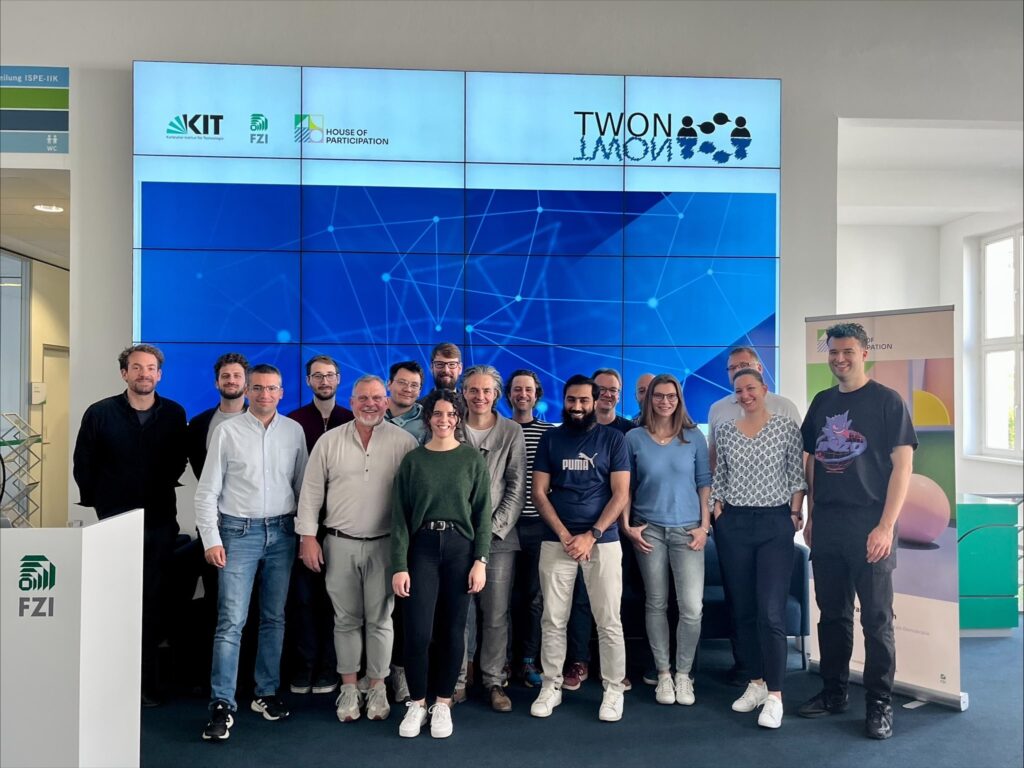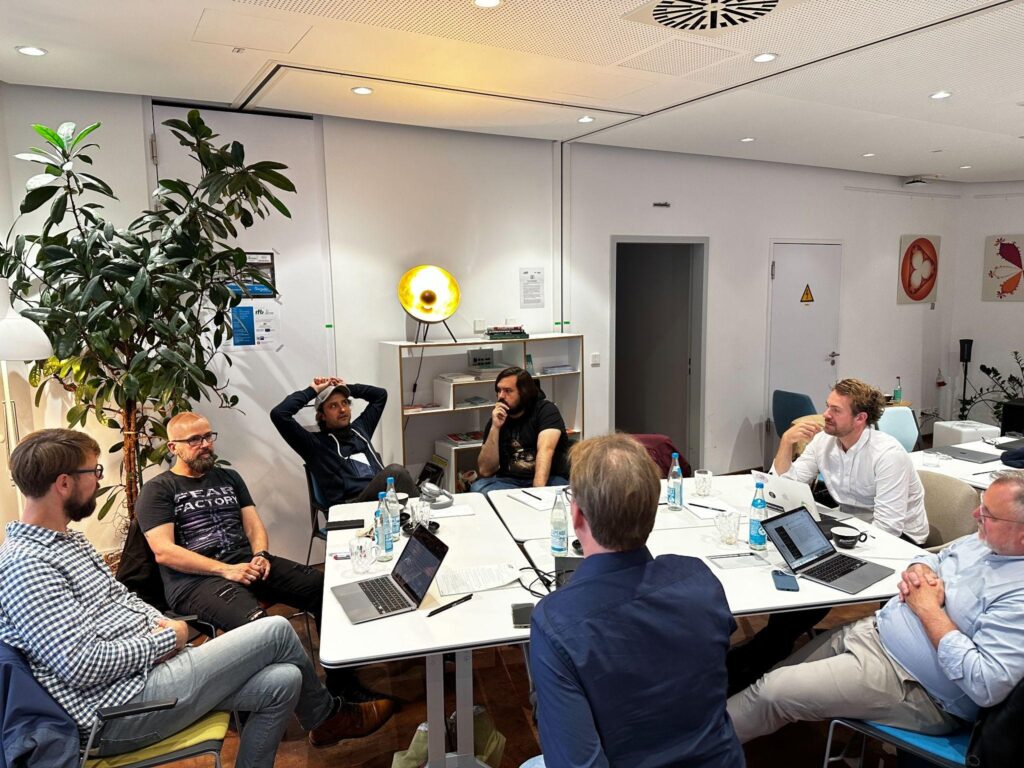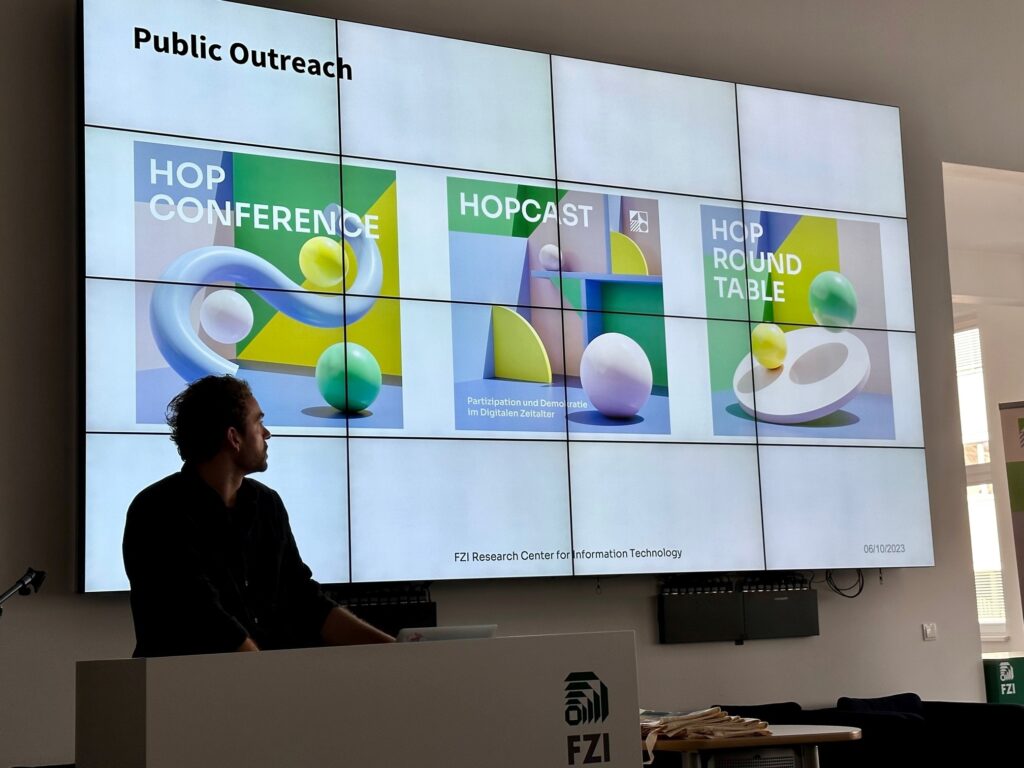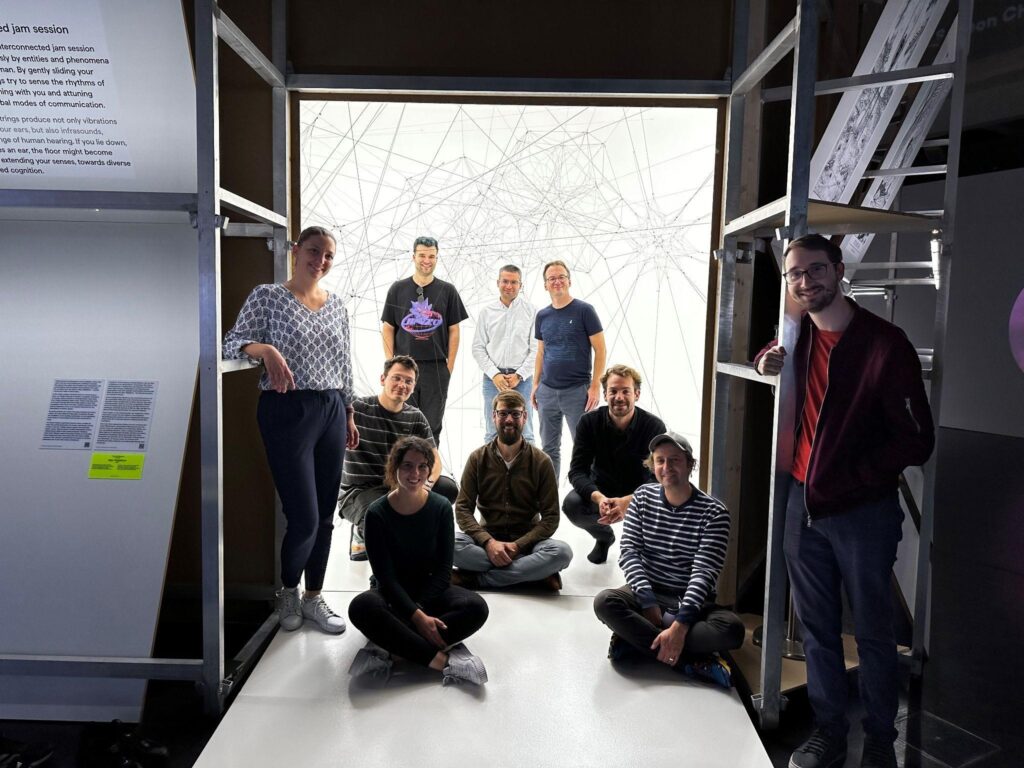
Six months after our project kick-off in Amsterdam, the TWON consortium gathered for its second consortium meeting in Karlsruhe on October 5th and October 6th of 2023. The hosts, FZI and KIT, planned two jam-packed days of workshops, presentations and activities to catch each other up-to-speed on the different developing pieces and work packages comprising TWON.

We spent the majority of the day on Thursday learning from each other about the progress and challenges of each work package. Thursday morning, Prof. Michael Mäs (KIT) presented his progress on the modelling of TWON based on social network theory and computational sociology, and Simon Münker (University of Trier) layed out his preceding and upcoming work regarding the data collection to estimate our TWON. Krisztian Buza and Abdul Sittar (both JSI) then presented to us their progress on actually building the digital twin of an online social network (OSN), which will be the backbone of the project.
In the afternoon, Sjoerd Stolwijk and Michael Heseltine from the University of Amsterdam presented the metrics they are developing for the evaluation of democratic debates in OSNs. They also gave their insights on how they will be examining the impact of filter bubbles and disinformation campaigns on opinion dynamics and the spread of disinformation. Collectively, we then brainstormed ideas on how to best implement the case studies. We ended the day with a delicious dinner at Il Caminetto in Karlsruhe.

On Friday, our work mostly revolved around the question of how to communicate our results with the public and specific stakeholders, and how to disseminate findings effectively in the scientific community. Jonas Fegert (FZI) kicked us off with a presentation of the strategies developed by the FZI-led work package on dissemination activities, and presented strategies for reaching citizens, social actors, stakeholders and politicians at different levels and through different channels. We subsequently broke out into groups to garner feedback from the consortium members – each contributing to the workshop by providing their own unique scholarly, regional, and personal perspectives.

The consortium meeting ended on a high note, namely the Renaissance 3.0 exhibition at Karlsruhe’s Center for Art and Media (ZKM). The exhibition – all about the interconnectivity of research, artistry, and their social impacts – was an inspiration to the consortium, and we left Karlsruhe ready to hit new milestones in our work packages. The next consortium meeting will take place in Trier in March of 2023 – until then, make sure to follow us on Twitter and Mastodon and check our blog for updates on the progress of the project.
